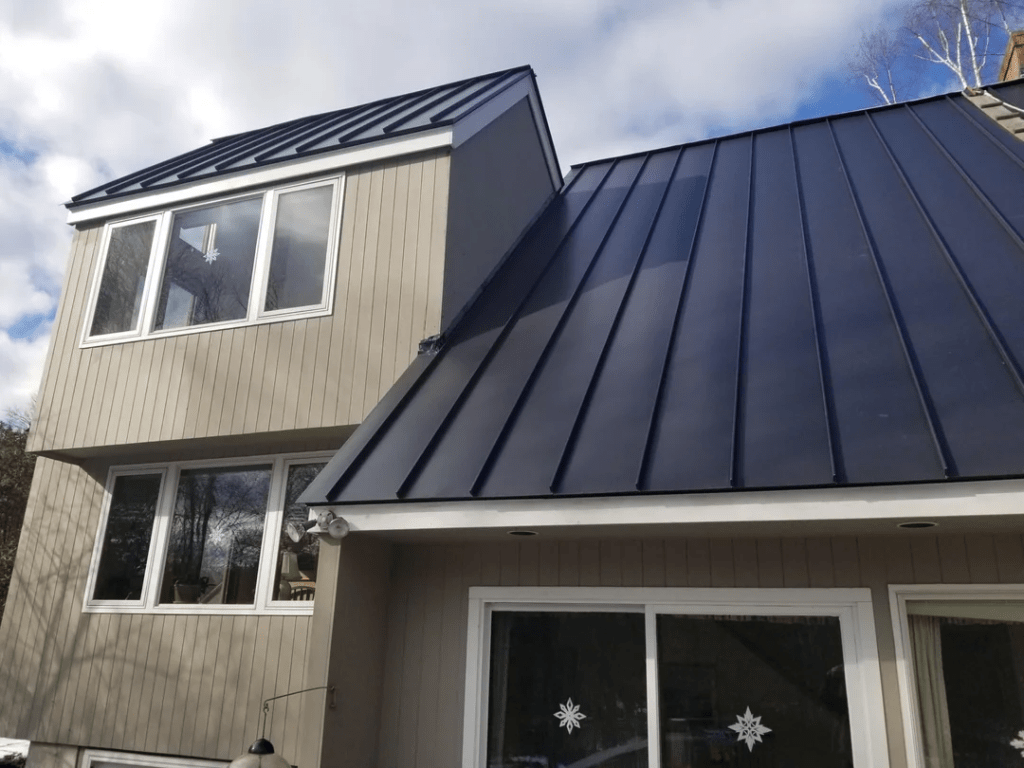When considering a new roofing option, many homeowners ponder the practicality, durability, and noise levels associated with various materials. One common question that arises is, “Are metal roofs loud?” This article will explore the truth behind this query, examining factors that contribute to roof noise, comparing metal roofs to other roofing materials, and providing insights on noise reduction techniques.

Understanding Metal Roofs
Metal roofs are gaining popularity for a variety of reasons, including their durability, energy efficiency, and aesthetic appeal. Made from materials such as steel, aluminum, copper, or zinc, metal roofing can withstand harsh weather conditions, making it an excellent choice for many climates.
Benefits of Metal Roofs
- Longevity: Metal roofs typically last 40 to 70 years, depending on the material and maintenance.
- Energy Efficiency: Reflective properties can help reduce cooling costs.
- Environmentally Friendly: Many metal roofs are made from recycled materials and are recyclable at the end of their life.
Despite these advantages, concerns about noise levels remain a primary consideration for many homeowners.
Are Metal Roofs Loud?
The Reality of Noise Levels
The perception that metal roofs are excessively loud is largely based on misconceptions. While it is true that metal roofs can create noise during heavy rain, hail, or snow, several factors influence the overall sound levels.
Read too: How To Replace Roof Shingles That Blew Off: A Comprehensive Guide
Factors Influencing Noise Levels
- Roof Structure: The design and structure of the roof play a significant role in sound transmission. For instance, a well-insulated roof will significantly reduce noise levels compared to a poorly insulated one.
- Underlying Material: The materials used underneath the metal roof, such as plywood or insulation, can absorb sound and dampen any noise.
- Installation Quality: Proper installation can help minimize noise. An expert roofing contractor will ensure that the metal panels are fitted correctly, reducing the likelihood of noise.
Comparison with Other Roofing Materials
To further understand whether metal roofs are loud, it’s helpful to compare them to other common roofing materials.
Asphalt Shingles
Asphalt shingles are a popular choice due to their affordability and ease of installation. However, they can produce noise during rain and wind. While they may not resonate as much as metal, the cumulative noise from an asphalt roof can be comparable.
Tile Roofs
Tile roofs can also be noisy, particularly when struck by hail or heavy rain. However, their weight often allows them to dampen sound better than lighter materials like metal.
Wood Shakes
Wood shakes provide natural insulation, which can help absorb sound. However, they are also prone to cracking and may require more maintenance, which can affect their longevity and effectiveness in noise reduction.
Noise Reduction Techniques for Metal Roofs
If you are still concerned about the noise associated with metal roofs, several techniques can help mitigate sound levels.
1. Insulation
Proper insulation is one of the most effective methods for reducing noise. Insulation materials such as fiberglass, foam, or mineral wool can significantly dampen sound transmission, creating a quieter living environment.
2. Use of Sound-Deadening Underlayment
Installing a sound-deadening underlayment beneath the metal roof can help absorb noise. This underlayment acts as a barrier, reducing the impact of sound waves that might otherwise reverberate through the building.
3. Choose the Right Metal Type
Some metals are inherently quieter than others. For instance, aluminum tends to be quieter than steel due to its different structural properties. Researching the type of metal used in your roof can make a difference in noise levels.
4. Roof Design
The design of your roof can also influence noise levels. Steeper roofs tend to shed rain and snow more effectively, reducing the impact noise generated during inclement weather.
Addressing Common Myths About Metal Roof Noise
Myth 1: Metal Roofs Are Always Loud
While it’s true that metal roofs can produce noise, especially during heavy rain or hail, this isn’t the case in all circumstances. Many homeowners report that their metal roofs are no louder than traditional roofing materials.
Myth 2: You Can Hear Every Raindrop
Many assume that every raindrop will sound like a drum on a metal roof. In reality, if properly insulated and installed, metal roofs can be quite quiet, particularly during light rain.
Myth 3: Metal Roofs Are Only for Commercial Buildings
Metal roofs are often associated with commercial structures, but they are increasingly popular in residential settings as well. They can add a modern aesthetic and provide a functional solution for homeowners.
Conclusion
So, are metal roofs loud? The answer is nuanced. While they can produce noise during severe weather, the overall sound levels can be managed through proper insulation, quality installation, and careful material selection. Understanding the factors that influence noise levels and utilizing effective noise reduction techniques can help you enjoy the benefits of a metal roof without the disturbances you might expect.
If you’re considering a metal roof, be sure to consult with a qualified roofing contractor to ensure the best choices for your home and environment.



Leave a Reply